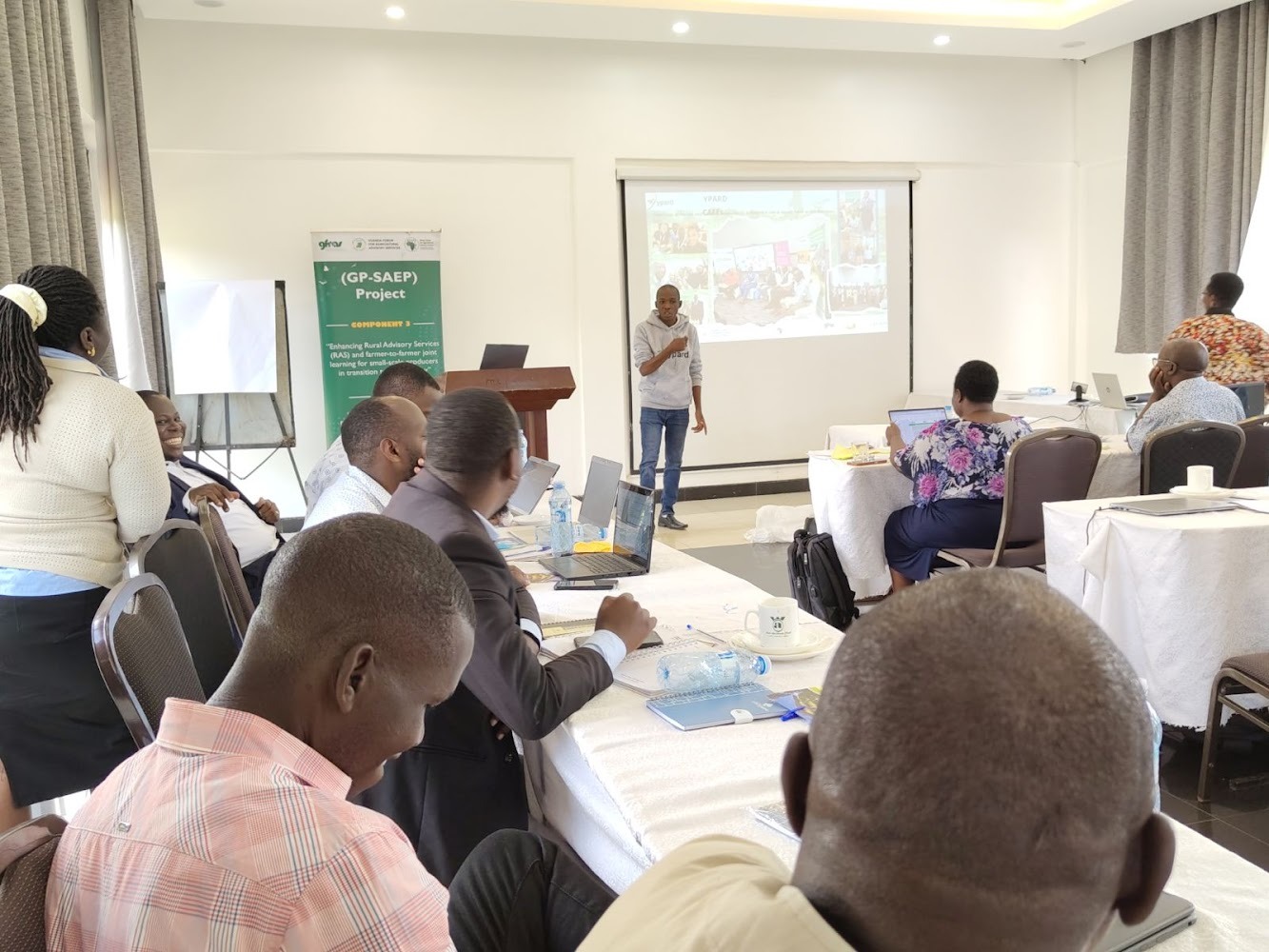On behalf of the youth fellows, Tadeo Ajuna delivered an inspiring joint presentation highlighting the fellows’ journey and accomplishments over the past 2nd year of the project. He shared how the program has offered valuable learning and networking opportunities through YPARD’s engagement in both national and international platforms. These included the YPARD Café sessions during the Africa-Wide Agriculture Extension Week (AAEW) held from May 12–14, 2025, in Lilongwe, Malawi; the 2nd East African Agroecology Conference on February 25, 2025, in Nairobi, Kenya; and the YPARD Café at Jero Farm on September 17, 2025. The fellows also actively participated in project monitoring visits, Communities of Practice (CoPs), and knowledge-sharing sessions across districts.
Reflecting on their year-long journey, the fellows shared several key lessons learned. They developed a deeper understanding of agroecology as an integrated approach that combines science, practice, and social movement to transform food systems. They recognized the value of ecological principles in enhancing productivity, biodiversity, and climate resilience, while deepening appreciation for farmer-centered innovation and participatory learning. The fellows also strengthened their capacity to integrate local and scientific knowledge, advancing solutions that are practical, inclusive, and sustainable. Moreover, they learned how agroecology not only improves farm-level outcomes but also contributes to social equity, food sovereignty, and youth empowerment.

Tadeo expressed appreciation for the teamwork and collaboration among the district clusters, noting that the collective effort of fellows and mentors has been central to the project’s success. Over four mentorship sessions were held during the year, offering personalized guidance that enhanced the fellows’ professional growth and field implementation capacity. “The mentorship process has been transformative—helping us connect theory to practice and align our work with the broader goals of sustainable food systems,” Tadeo remarked.
The workshop also provided an opportunity for cross-learning among different project clusters. Participants exchanged insights on innovative agroecological practices, youth-led initiatives, and the use of participatory tools to document and scale community-based evidence. The Scientific Goggles Writeshop, facilitated by partners from UFAAS and Access Agriculture, emphasized the importance of scientific thinking and documentation in advancing agroecology.
The event concluded with a shared commitment to deepen collaboration, strengthen the science–practice nexus, and promote youth leadership in agroecology across Uganda. It was a true celebration of learning, mentorship, and the growing impact of the GP-SAEP project in empowering young professionals to drive sustainable agricultural transformation.